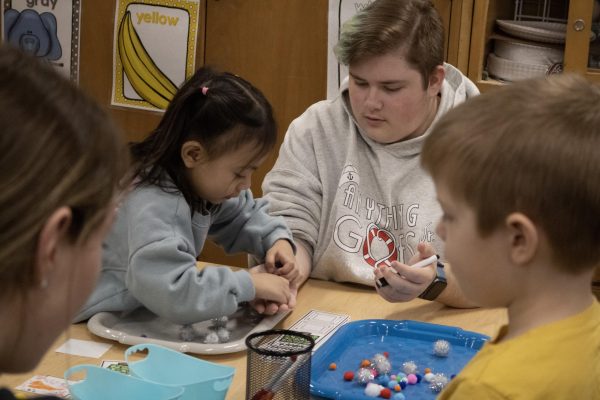Celebrating Jewish New Year
September 30, 2022
Junior Veronica Razumov wakes up to the rousing tones of the Shofar–a Jewish instrument from ram’s horn–and the Jewish New Year comes to light. While these tones remind her of what her future holds, they also spark an introspection of the past. She celebrates with her family by eating apples dipped in honey, and Challah–braided, round bread–to energize before the long synagogue services to come.
Rosh Hashanah, the Jewish New Year, begins on the first day of Tishrei, a month on the Jewish calendar, from Sept. 25 to 27 this year, in an alternating annual order with changing dates encompassing a 10-day period of repentance, Yitzchak Crandus, Jewish Student Union Club Sponsor, explained.
“[People celebrating] are supposed to go and think about what it means to improve yourself spiritually,” Crandus said. “The [spiritual] preparation [of the holiday] has begun now, but the actual holiday has to do with getting the correct foods and preparing meals.”
Houses are to be cleaned the day before Rosh Hashanah, indicating preparedness, the sweetness of upcomings, and cleansing of the soul, junior Chloe Eimer said. Having over 20 non-Jewish members in her family, Eimer tries to promote inclusivity by helping out with cleaning and food preparation to make sure everyone can take part.
“You have this connection with somebody, even if you don’t know them, by having [Rosh Hashanah] in common,” Eimer said. “It is very rare, and kind of fun, to have those little things with people.”
At Jewish Student Union club meetings, food and discussions are brought forth, followed by topical events, Crandus said. These continuous meetings are meant to be educational rather than religious, creating a historical and positive atmosphere where students can share their family stories.
“Usually we just discuss the holiday and its meaning and some of the traditions around it,” Crandus said. “[We share] stories about past Rosh Hashanah’s and what our families do [to celebrate] and what other Jews have done throughout the history of Judaism.”
For synagogue services, formal daytime white clothing is worn as a symbol of purity, Razumov explained. In Eimer’s sect, Kipphas–small brimless caps–are worn by both men and women, which helps promote equality and inclusivity, Eimer said.
“Socializing and congregating with [people of the same culture] is a very interactive experience,” Razumov said. “We all come together, and it’s really nice to just celebrate this day and common festivity.”













